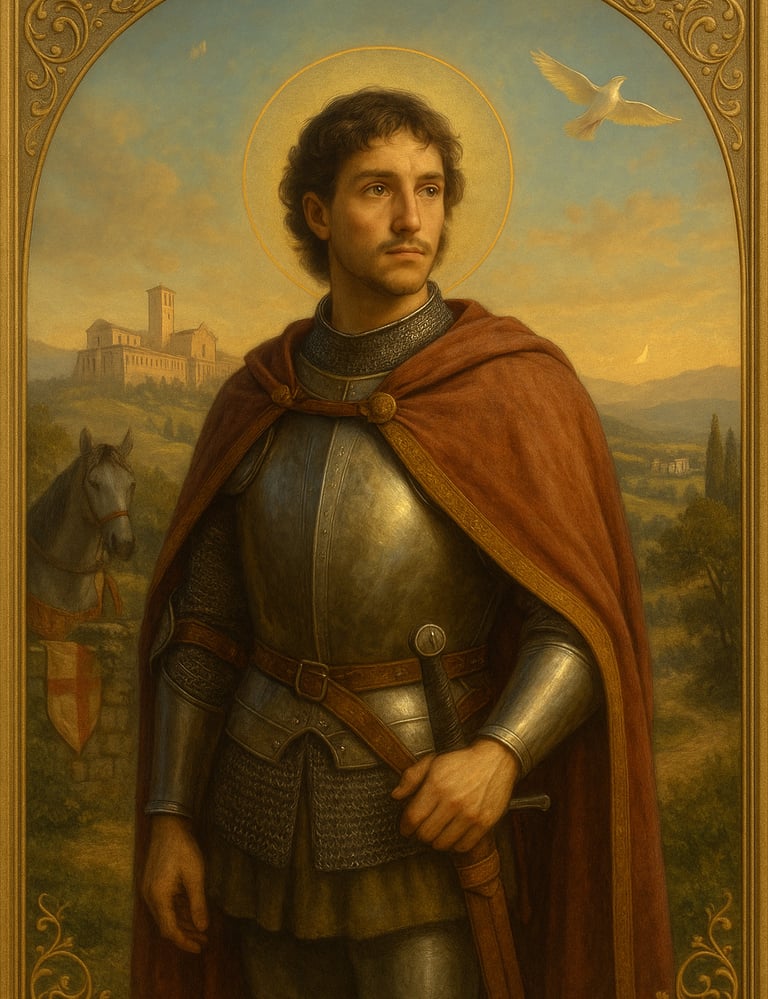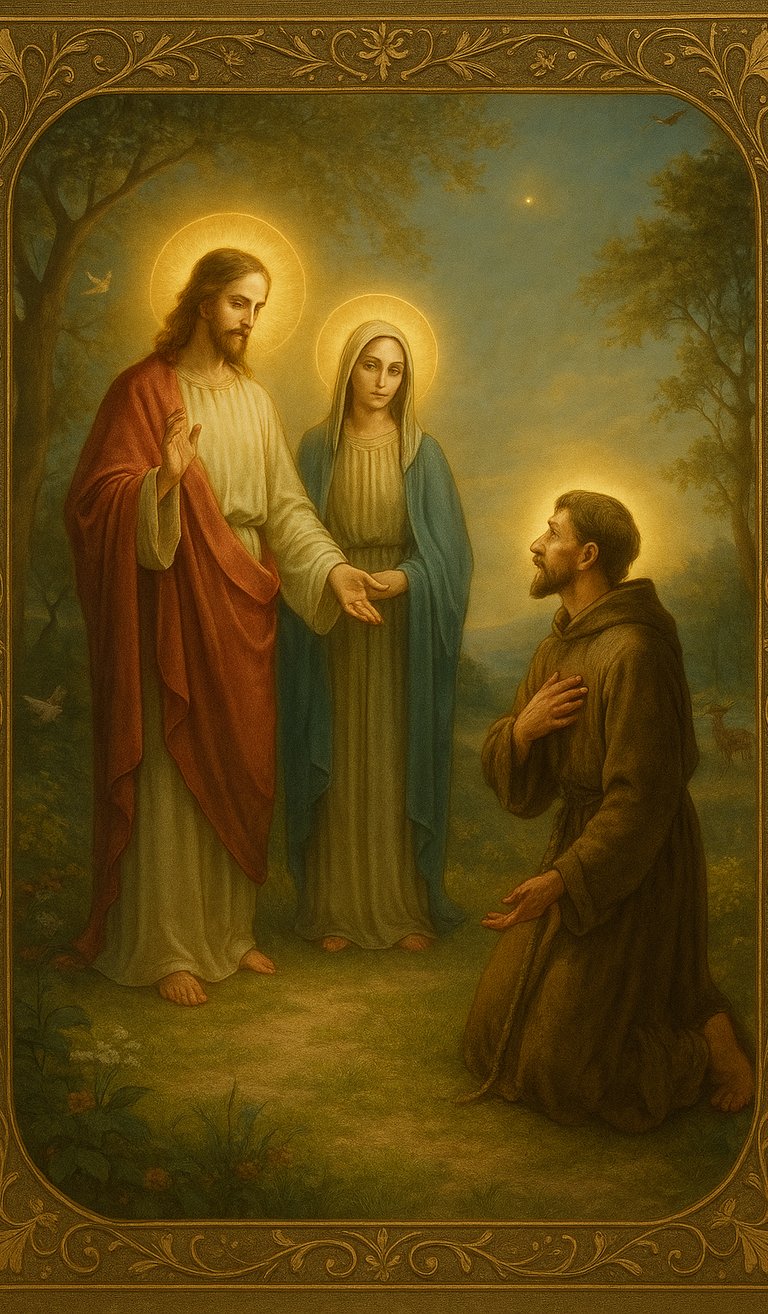Saint Francis of Assisi – The Poor Man Who Rebuilt the Church
Feast Day: October 4 | Patronage: Animals, Ecology, and Peace
Halo & Light Studios
10/5/20253 min read


Click Link for a reel of Daily Dose of Saints and Faithful Art:
https://youtube.com/shorts/52ttFNIh3PE?feature=share
Fellow Pilgrims in Christ,
In the hilltown of Assisi, Francesco Bernardone was born into prosperity. His youth was marked by frivolity, dreams of knighthood, and the trappings of comfort. But his life changed after war, imprisonment, and spiritual restlessness. In time, Christ’s gentle voice echoed in his heart: “Francis, go and rebuild My Church, which you see is falling into ruin.”
He obeyed both literally and spiritually—repairing crumbling chapels, renouncing his inheritance before the local bishop, and submitting himself to a life of radical poverty. Clothed in a simple tunic tied with rope, Francis owned nothing yet gave himself fully to the Gospel.
A touching story is retold from The Little Flowers of St. Francis, offering us a glimpse into the saint’s hidden prayer life. A young boy, captivated by Francis’ holiness, wished to imitate him. One night, he tied a small cord from his waist to Francis’ rope tunic so that when the saint rose to pray, he would awaken too. In his tenderness, Francis gently untied the cord so as not to disturb the boy and slipped into the night to pray alone. Drawn by grace, the child followed him quietly and witnessed a divine vision: Francis speaking with Jesus, the Blessed Virgin Mary, and a host of saints, all radiant in heavenly light.
Overwhelmed by the glory of the moment, the child fainted. Francis found him, carried him back tenderly, and commanded him to keep silent about what he had seen until after Francis’ death. This story offers a rare window into Francis’ interior life — one filled with humility, hiddenness, and intimate union with God. It reminds us that true sanctity often grows in silence before it blossoms in light.
Francis lived during the High Middle Ages, a time of economic expansion and religious turmoil. The Church, weighed down by luxury and power, was in desperate need of reform. Into this world, Francis entered barefoot, joyful, and aflame with love for Christ.
He gathered a band of followers who desired to live the Gospel without compromise. Together they formed the Order of Friars Minor—known as the Franciscans. In 1209, Pope Innocent III approved their simple rule: to own nothing, preach repentance, and show reverence for all creation.
For Francis, all creation was a reflection of the Creator. He called the sun and moon his siblings, composed the Canticle of the Creatures, and preached that even the smallest bird praised God by its song. In 1224, while praying on Mount La Verna, Francis received the stigmata, the wounds of Christ, a sign of mystical union that he bore until his death in 1226.
The life of St. Francis was not an escape from the world but a radical engagement with it. He crossed battle lines during the Fifth Crusade to meet the Sultan of Egypt, preaching peace through dialogue rather than violence. His example inspired women like St. Clare of Assisi, whose Poor Clare community mirrored his spirit of humility and devotion.
Francis’ witness challenges every generation: to lay aside what burdens the soul, to love creation as God’s masterpiece, and to rebuild the Church starting with the human heart. His story and the child’s vision remind us that the most powerful prayer may be the one whispered unseen — heard only by heaven.
St. Francis’ mission unfolded during the decades following the Fourth Lateran Council (1215) — a time when the Church sought reform and renewal. The rise of mendicant orders like the Franciscans and Dominicans reshaped Catholic life by bringing preaching, service, and poverty back to the heart of the Gospel. Francis’ legacy endures in every act of charity, in every creature cared for, and in every soul who chooses joy over pride.
“Start by doing what is necessary, then what is possible, and suddenly you are doing the impossible.” — St. Francis of Assisi


